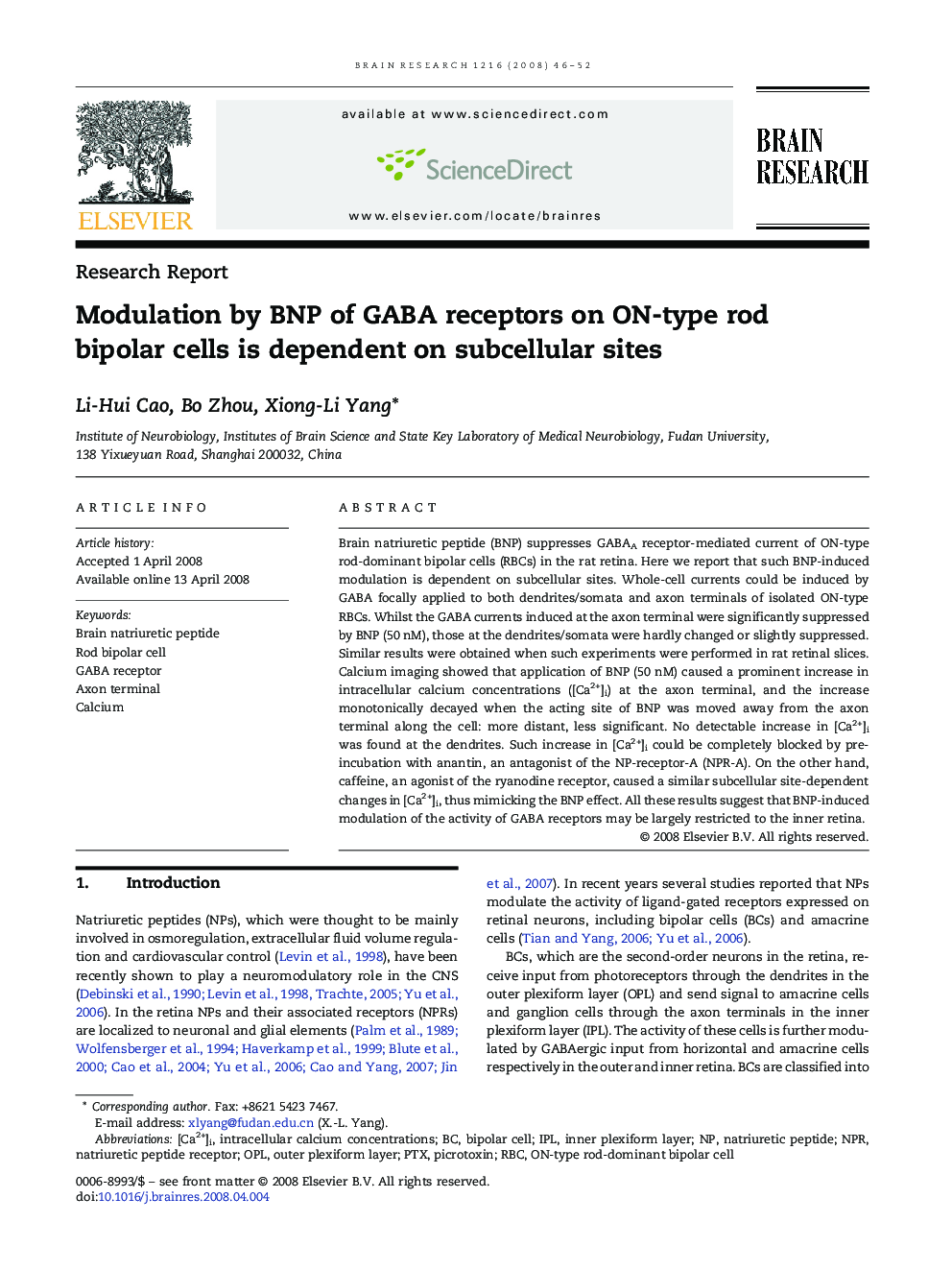| Article ID | Journal | Published Year | Pages | File Type |
|---|---|---|---|---|
| 4329729 | Brain Research | 2008 | 7 Pages |
Brain natriuretic peptide (BNP) suppresses GABAA receptor-mediated current of ON-type rod-dominant bipolar cells (RBCs) in the rat retina. Here we report that such BNP-induced modulation is dependent on subcellular sites. Whole-cell currents could be induced by GABA focally applied to both dendrites/somata and axon terminals of isolated ON-type RBCs. Whilst the GABA currents induced at the axon terminal were significantly suppressed by BNP (50 nM), those at the dendrites/somata were hardly changed or slightly suppressed. Similar results were obtained when such experiments were performed in rat retinal slices. Calcium imaging showed that application of BNP (50 nM) caused a prominent increase in intracellular calcium concentrations ([Ca2+]i) at the axon terminal, and the increase monotonically decayed when the acting site of BNP was moved away from the axon terminal along the cell: more distant, less significant. No detectable increase in [Ca2+]i was found at the dendrites. Such increase in [Ca2+]i could be completely blocked by pre-incubation with anantin, an antagonist of the NP-receptor-A (NPR-A). On the other hand, caffeine, an agonist of the ryanodine receptor, caused a similar subcellular site-dependent changes in [Ca2+]i, thus mimicking the BNP effect. All these results suggest that BNP-induced modulation of the activity of GABA receptors may be largely restricted to the inner retina.
